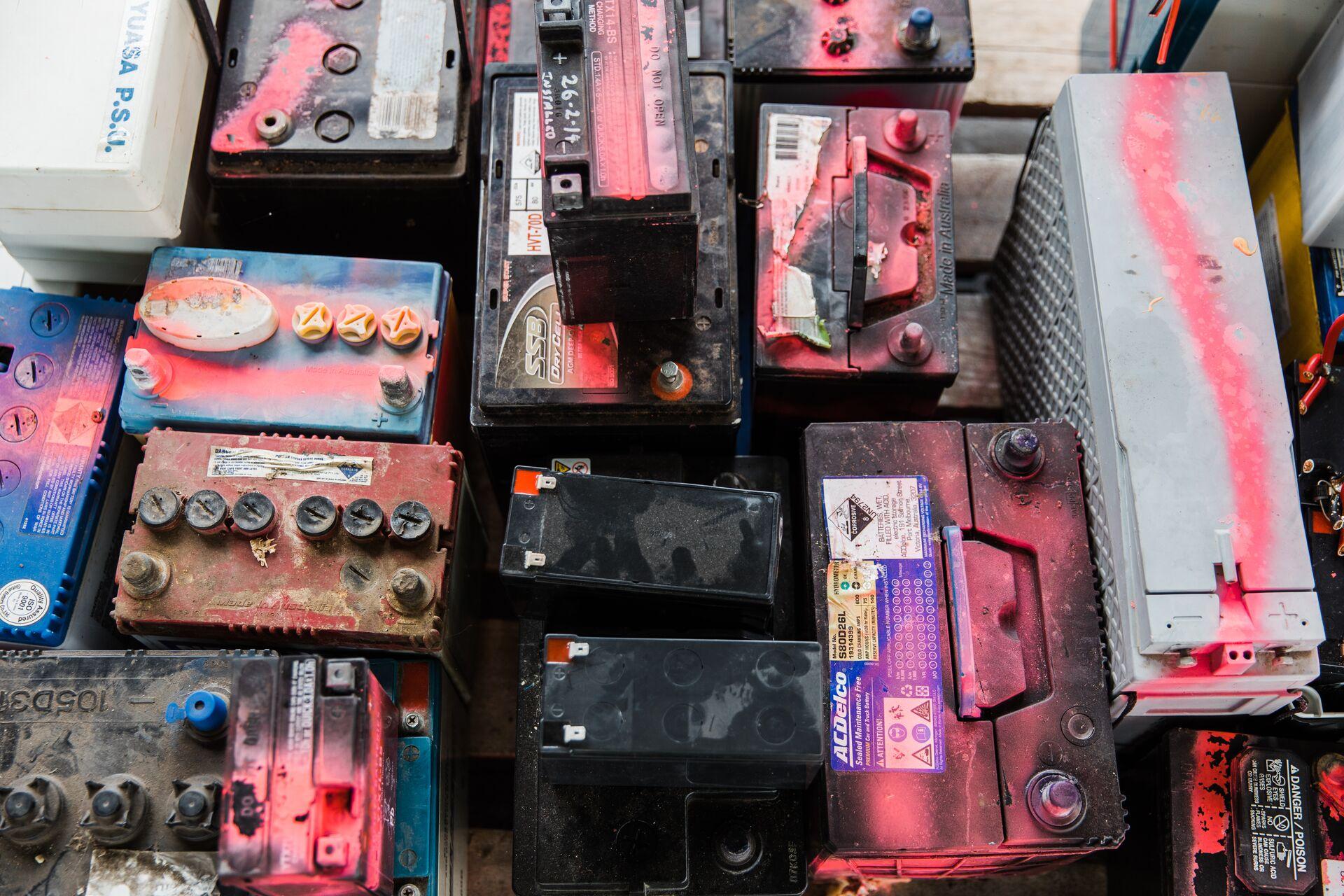Batteries
Lithium-ion batteries are the fastest growing fire risk, especially as they are contained within many electronic devices we use for our everyday lives. NSW Fire and Rescue provide important information on batteries and charging them safely for your household.
If batteries are not disposed of correctly, we are generating a hazard that could lead to fires in collection trucks and at the landfill. Batteries require specialised recycling, yet stats reveal that more than half of Australians are placing their used batteries in regular waste and recycling bins.
Battery drop-off locations in the community include:
- Businesses participating in the B-Cycle recycling program. You can find drop off locations by visiting Bcycle.
- Community Recycling Centre at Maitland Resource Recovery Facility
- Community recycling station at Maitland Administration Centre
- Local schools signed up to POWER UP
- Household Chemical Cleanout Events
- Register with RecycleSmart and receive regular collections from your doorstep for problem waste, like batteries.
Be battery safe and know how to handle, store and transport batteries safely.
Sharps
Safe needle disposal is important for a person who uses sharps for medical or non-medical use, and for many others who require sharps for managing chronic conditions like diabetes. Sharps, needles and syringes can be disposed of at dedicated community sharps bins at the following locations:
- Maitland Hospital
51 Metford Road, Metford - Maitland City Library
480 High St, Maitland - Rutherford Library and Community Centre
Arthur St, Rutherford
Please note: Community sharps bins are not for commercial use.
Asbestos
Many Australian homes contain asbestos as it was commonly used in NSW homes and buildings constructed or renovated before 1990.
Homeowners are responsible for managing and maintaining any asbestos-containing materials on their property, including:
- Hiring a licenced asbestos professional to remove more than 10 square metres (100kg) of asbestos
- Booking all asbestos deliveries to the Maitland Resource Recovery Facility 24 hours in advance by calling 4934 1888. Asbestos loads are only accepted on Wednesdays and Fridays
- Registering asbestos loads exceeding 10 square metres (100kg) with NSW EPA.
It is illegal to:
- Dump asbestos waste — it must go to a landfill licensed to accept it
- Place asbestos in your kerbside bin
- Put asbestos in an uncovered skip bin or skip bin not approved to hold asbestos
- Reuse or recycle asbestos such as using it for building or fencing.
RecycleSmart
You can receive free regular collection and recycling of some problem waste items as part of the RecycleSmart program. All Maitland residents can dispose of two (2) bags of basic items on a regular basis.
Eligible items
Basic items that can be collected include:
- Clothing and textiles
- Soft plastics
- E-waste
- Problem waste items including batteries, CD and DVD's and small household appliances.
You can also arrange for larger items such as cardboard boxes and electronics to be collected for a small fee.
Find out all the items included in the program via the RecycleSmart website.
Problem waste drop off events
Chemical CleanOut
You can dispose of unwanted chemicals free of charge at Household Chemical CleanOut events, run in association with NSW EPA.
Please note: Cleanaway will only accept collection during events.
The collection accepts items such as:
- Garden and pool chemicals
- Household cleaners
- Poisons
- Paint
- Motor oils and fuels
- Gas bottles and fire extinguishers
- Fluoro lights
- Smoke detectors
Please note: A maximum limit of 20 litres or 20 kgs of a single item.
Upcoming events
- Saturday 20 December 2025
9am - 3.30pm, Cleanaway Depot, 41 Kyle Street, Rutherford
DrumMuster
You can dispose of unwanted empty agricultural and veterinary products and containers.
Containers that are eligible will carry the DrumMuster logo.
Upcoming events
- No upcoming events

